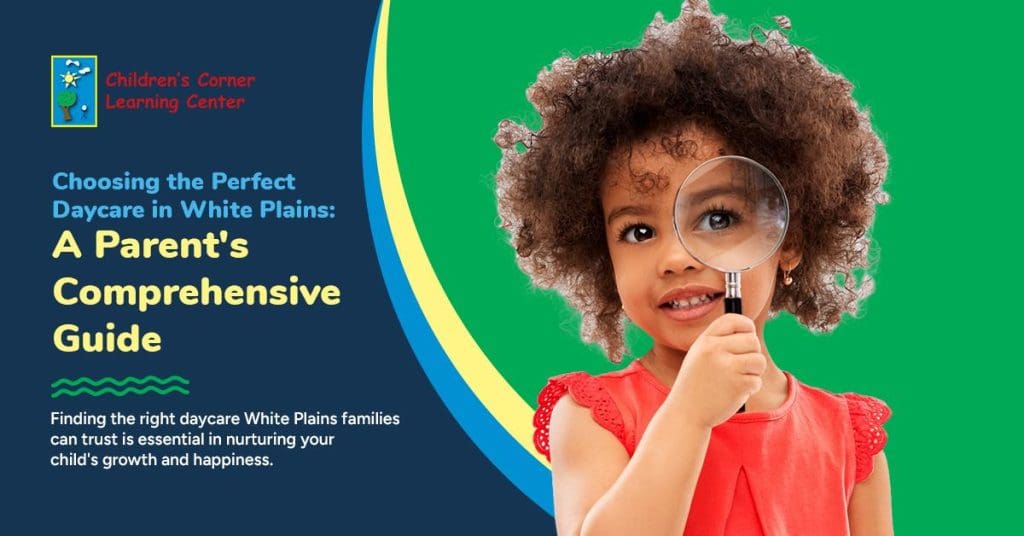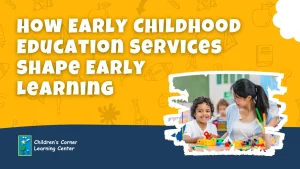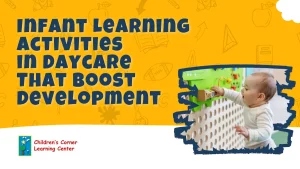Finding the right daycare White Plainsfamilies can trust is essential in nurturing your child’s growth and happiness. With so many options available, choosing a center that balances safety, education, and a loving environmentcan be overwhelming. The perfect daycare should feel like an extension of your home, offering the care and attention your child needs to thrive.
From evaluating programs to understanding costs, there are key factors every parent should consider when making this critical decision. This guide will provide the tools and insights to confidently choose a daycare in White Plains that meets your family’s unique needs. Let’s explore how to find a place where your child can grow, learn, and build a foundation for lifelong success.
Exploring the Best Daycare Programs in White Plains
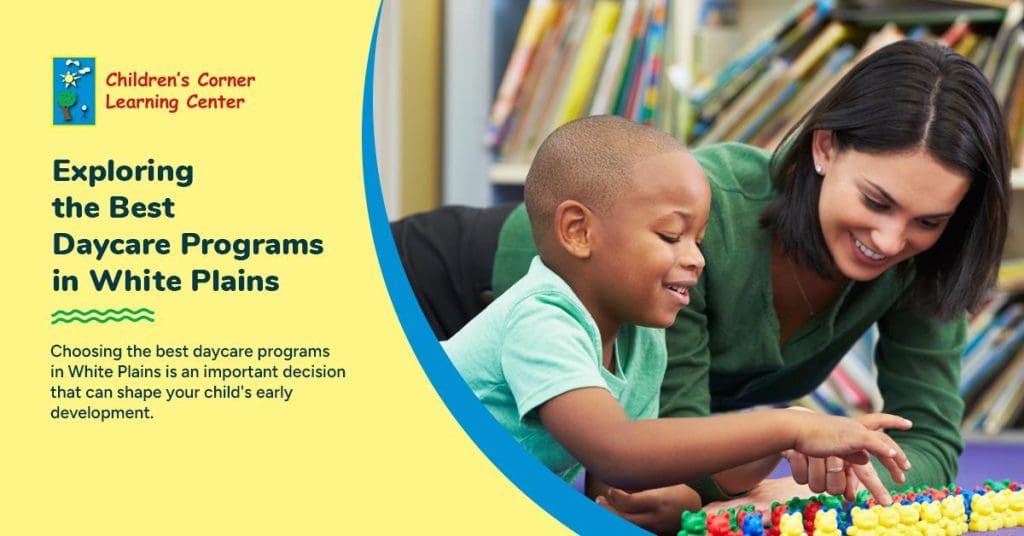
Choosing the best daycare programs in White Plainsis an important decisionthat can shape your child’s early development. High-quality daycare programs do more than just supervise children—they provide a foundation for learning, social growth, and emotional well-being. Knowing what to look for, you can find a program that meets your child’s needs and gives you peace of mind as a parent.
Key Features of Quality Daycare Programs
The best daycare programs go beyond the basics, offering a nurturing environment where children can thrive. These features are essential to look for when evaluating your options:
- Licensed and accredited centers: Ensure the daycare meets state standards for safety and education.
- Experienced and qualified staff: Teachers with early childhood education training create a positive learning environment.
- Engaging daily schedules: A mix of structured and free-play activities supports well-rounded development.
When visiting daycare centers, observe how these features are implemented and ask questions to ensure they align with your expectations.
How to Evaluate a Daycare's Curriculum and Activities
A strong curriculum is the backbone of any quality daycare program. Look for centers that blend education with play to encourage a love for learning from an early age.
Consider these elements in the curriculum:
- Hands-on learning: Activities like building blocks, arts and crafts, and sensory play encourage creativity and problem-solving.
- Group interaction: Promotes social skills through collaborative activities and games.
- Physical activity: Daily outdoor or indoor movement opportunities help children stay active and healthy.
Ask for a sample daily schedule to see how the daycare balances learning, play, and rest. This will give you a better understanding of your child’s day.
Benefits of Choosing a Convenient Location
The location of your chosen daycare plays a significant role in your daily routine. A conveniently located program can save time and reduce stress, making your family’s schedule more manageable.
Here’s why location matters:
- Proximity to home or work: Reduces commute time and allows quick check-ins if needed.
- Accessibility to local parks or libraries: Enhances the program with off-site learning experiences.
- Safe and quiet surroundings: Ensures your child’s comfort and security.
When researching daycare programs, prioritize those in safe neighborhoods and nearby places you frequent to simplify logistics.
Parent Involvement and Communication
The best daycare programs actively involve parents in their child’s experience. Clear and open communication builds trust and ensures you’re always informed about your child’s progress.
Look for programs that offer:
- Daily updates: Information about activities, meals, and naps keeps you connected.
- Parent-teacher meetings: Opportunities to discuss your child’s development and any concerns.
- Family events: Activities like open houses or parent workshops foster a sense of community.
Strong partnerships between parents and caregivers create a supportive environment that most benefits children.
Why Preschool Learning Experiences Matter for Early Development
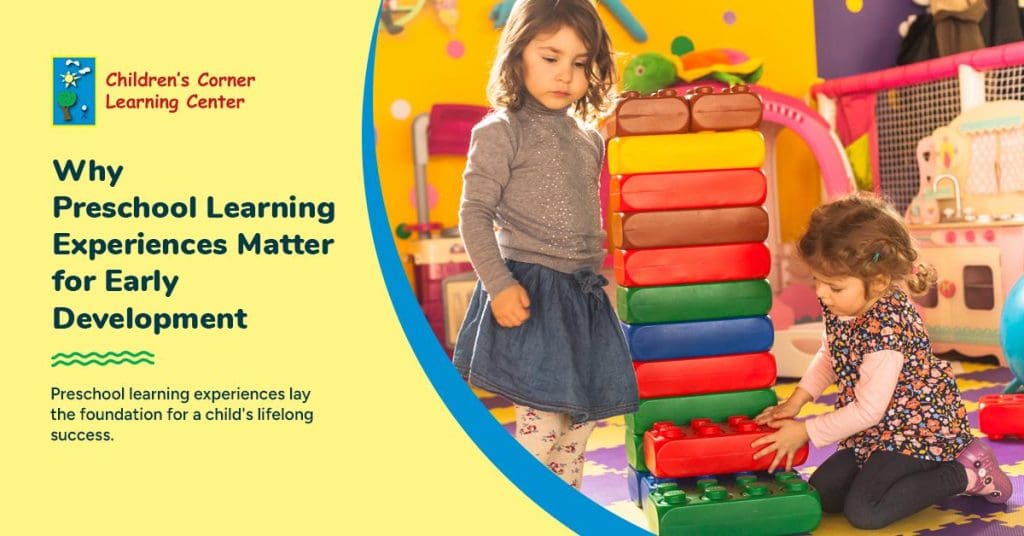
Preschool learning experienceslay the foundation for a child’s lifelong success. During these critical early years, children develop essential skills that shape their cognitive, social, and emotional growth. A quality preschool programprovidesstructured learning opportunities beyond play, preparing children for the challenges and expectations of kindergarten and beyond.
Building Cognitive Skills Through Play and Exploration
Preschool is where children engage in activities that enhance their cognitive abilities. These experiences stimulate curiosity and encourage problem-solving while fostering a love for learning.
Key activities that promote cognitive growth include:
- Hands-on experiments: Encourage curiosity with simple science activities like mixing colors or observing nature.
- Puzzles and building blocks: Develop critical thinking and spatial awareness.
- Storytime sessions: Boost vocabulary, comprehension, and imagination through interactive storytelling.
These activities teach children to think critically, approach challenges creatively, and build foundational skills for academic success.
Social and Emotional Development Through Group Interactions
Preschool offers a structured environment where children learn to navigate social relationships and build emotional resilience. These skills are critical for their ability to form friendships, work in teams, and express themselves effectively.
Social benefits of preschool learning experiences include:
- Collaborative activities: Group projects or games teach teamwork and cooperation.
- Role-playing games: Encourage empathy by allowing children to understand different perspectives.
- Conflict resolution lessons: Teach children how to manage disagreements healthily and constructively.
These experiences prepare children for school’s social dynamics and help them develop confidence and a sense of belonging.
Fostering Independence and Responsibility
Preschool is often the first time children take on responsibilities outside their home environment, helping them build independence and accountability. This is a vital step in their journey toward self-reliance.
Ways preschool nurtures independence include:
- Structured routines: Help children understand the importance of time management and consistency.
- Self-help skills: Encourage dressing, feeding, and cleaning up after activities.
- Classroom jobs: Assigning minor roles, like line leader or snack helper, boosts confidence and responsibility.
These experiences empower children to take pride in their achievements and develop the self-discipline needed for future challenges.
Preparing for Kindergarten and Beyond
Preschool bridges the gap between home and formal schooling, providing children with the skills they need to succeed in kindergarten. By introducing early learning concepts in a structured yet playful way, preschool ensures children are academically and socially prepared.
Preparation for kindergarten includes:
- Letter and number recognition: Foundational skills for reading and math readiness.
- Listening and following directions: Essential for classroom participation and learning.
- Fine motor skill development: Drawing or cutting prepares children for writing tasks.
These experiences ensure that children transition smoothly into the structured environment of elementary school, equipped with the skills and confidence to thrive.
Understanding Age-Appropriate Child Care Programs and Their Benefits
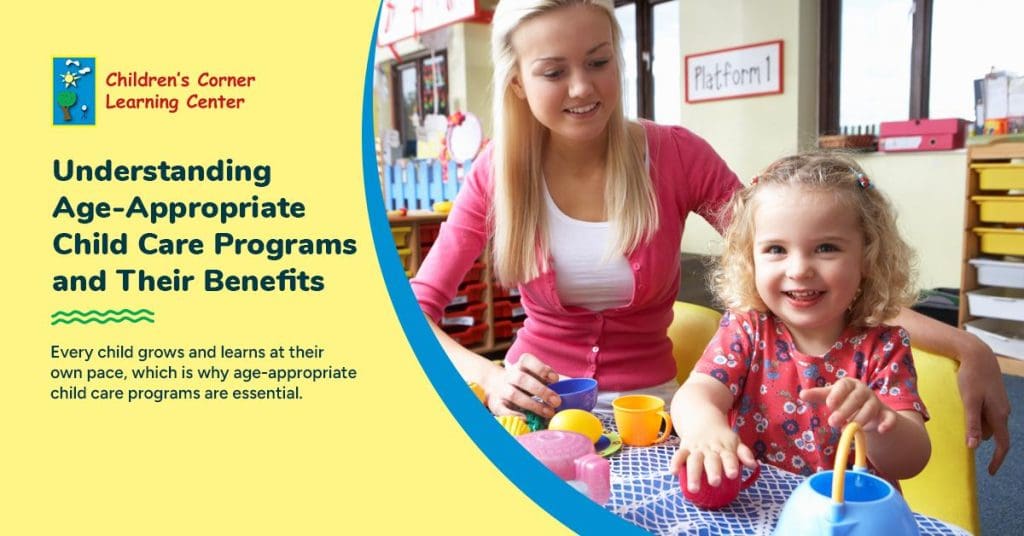
Every child grows and learns at their own pace, which is why age-appropriate child careprogramsare essential. These programs are specifically tailored to meet the developmental needs of children at different stages, offering activities and care that promote growth, learning, and confidence. Understanding how these programs workand their benefits can help you make informed choices for your child’s early education journey.
Infant Care: Nurturing the Youngest Learners
Infant care programs focus on creating a safe, loving, and stimulating environment for babies from birth to around 12 months. At this stage, the goal is to provide nurturing care that supports their emotional and physical development.
Key elements of infant care programs include:
- Responsive caregiving: Attentive staff who respond to cues like crying or babbling to build trust.
- Sensory activities: Gentle interactions like singing, soft toys, and visual stimuli encourage brain development.
- Individualized routines: Flexible feeding, sleeping, and play schedules ensure each baby’s needs are met.
These programs lay the groundwork for secure attachments and early learning, giving infants the confidence to explore their world.
Toddler Programs: Encouraging Exploration and Independence
Toddlers are naturally curious and eager to explore, making this stage a critical time for fostering independence and creativity. Child care programs for toddlers, typically aged 1-3 years, focus on hands-on learning and social interaction.
Features of toddler programs include:
- Interactive play: Activities like puzzles, blocks, and pretend play stimulate problem-solving skills.
- Language development: Storytime and songs help expand vocabulary and communication.
- Guided social interaction: Teaches sharing, turn-taking, and empathy through group activities.
These experiences balance structure and freedom, helping toddlers develop the skills they need for preschool and beyond.
Preschool Care: Preparing for the Next Big Step
Preschool programs cater to children ages 3-5, focusing on school readiness and holistic development. These programs integrate structured learning with play to prepare children for kindergarten’s academic and social challenges.
Benefits of preschool care include:
- Early literacy and math skills: Introduces letters, numbers, and basic problem-solving concepts.
- Creative expression: Art, music, and imaginative play encourage creativity and self-confidence.
- Social and emotional learning: Activities that teach cooperation, patience, and emotional regulation.
Children who complete preschool have the tools and confidence to succeed in a formal school setting.
The Benefits of Tailored Care
Age-appropriate programs aren’t just about matching activities to developmental stages—they ensure that children feel understood and supported every step of the way. When care is tailored to a child’s needs, it fosters:
- Confidence: Children feel accomplished when they achieve milestones suited to their age.
- Curiosity: Programs encourage exploration and a love for learning.
- Emotional security: Age-specific routines and activities help children feel safe and understood.
With the right program, your child will enjoy a well-rounded experience supporting growth, learning, and happiness at every stage.
The Importance of Quality Daycare at Children's Corner Learning Center
Choosing the right childcare program is among the most impactful decisions for your child’s early years. Whether it’s nurturing care for infants, fostering independence in toddlers, or preparing preschoolers for kindergarten, age-appropriate programs ensure your child grows, learns, and thrives in a supportive environment. Understanding the unique benefits of these tailored programs sets the stage for a future filled with confidence, curiosity, and success.
Ready to explore the best childcare options for your family? Schedule a tour at Children’s Corner Learning Center to see how we can meet your child’s needs at every stage. Visit this pageor call us at (845) 250-5492 to book your tour today. Let’s help your child shine!

